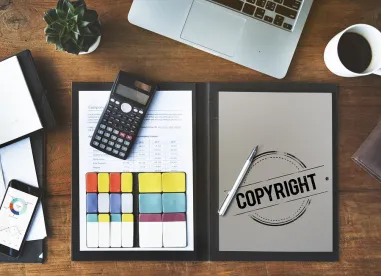The US Copyright Office issued new regulations expanding and strengthening consumers’ rights to repair software-enabled digital devices (such as video game consoles and medical devices) via exemptions to the Digital Millennium Copyright Act.
Under 17 U.S.C. § 1201, it is generally unlawful to “circumvent a technological measure that effectively controls access to” copyrighted works. In response to proposals from several organizations, including the Electronic Frontier Foundation and the iFixit and Repair Association, the Registrar of Copyright (as it has done every three years since 2000) made rulemaking recommendations to the Librarian of Congress; recommendations that have now been adopted as final rules. The new rules create exemptions to make it easier to repair software-enabled devices. In the prior rulemaking sessions, the Register of Copyrights recommended—and the Librarian of Congress adopted—17 groups of exceptions. This session, the Register recommended 14 additional classes of exemptions, all of which have been adopted.
Among the 14 classes of exemptions that were recommended and adopted are the following:
-
Computer programs that operate the following types of devices, to allow diagnosis, maintenance and repair:
-
Motorized land vehicles or marine vessels
-
Devices primarily designed for use by consumers
-
Medical devices and systems.
-
This proposed class initially included “modification” in addition to diagnosis, maintenance and repair, but the exemption for modifications was ultimately eliminated. The Register reasoned that including all “modification[s]” would encompass both infringing and noninfringing activities and would implicate the right to prepare derivative works, as well as other issues.
This proposed class, “Computer Programs – Repair,” was initially divided into four general categories: “(1) all software-enabled devices; (2) vehicles and marine vessels; (3) video game consoles; and (4) medical devices and systems.” Not all of the categories made it through, as the Register removed all software-enabled devices from the recommendations. The recommendations stated that this category would have made the class too broad and would have raised the complex question of which types of devices would qualify for permitted repair.
After consideration of all the issues, the Register determined the following three classes had sufficient commonalities to recommend them: Computer programs in devices primarily designed for use by consumers (such as the repairing of optical drives in video games), computer programs in marine vessels and computer programs and data in medical devices and systems. The adopted exemptions expanding the current exemptions for vehicle and device repair and added an exemption for medical devices and systems repair.
The Rules also expand exemptions for consumer-related devices only. In recommending exemptions for device repair, the Register found significant commonalities among uses and users in terms of the diversity of software-enabled devices designed for use by consumers. The Register determined that the narrowed uses of “diagnosis, maintenance, and repair” were supported by the fair use factors, and that the exemption was “not accomplished for the purpose of gaining access to other copyrighted works.” The recommendations also contained a special subset for video games, which narrows the exemption solely to the repair of optical drives. The Rules state that if the video game console does not contain an optical device, then it is not eligible to fall under the exemption. This specification was made to accommodate “legitimate concerns over links between console circumvention and piracy.”
The Rules also expand the existing exemption for land vehicles to include marine vessels. The Register reasoned that the proposed uses would likely be noninfringing for marine vessels, and that the similarities between marine vessels and land vehicles left no reason to differentiate between them.
The Rules lastly included a new exemption allowing circumvention of restrictive access to firmware and servicing materials for medical devices and systems for the diagnosis, maintenance and repair of such devices. The Register determined that the prior prohibition on the circumvention of technological protection measures (TPMs) made “medical equipment software and manuals less available for use in noninfringing diagnosis, maintenance, and repair.” The Register further determined that the narrow categories of diagnosis, maintenance and repair will limit potential harm to the market because such uses support the programs rather than displace them.




 />i
/>i

